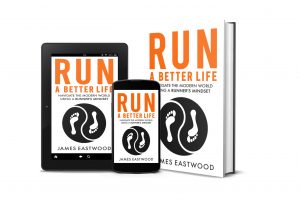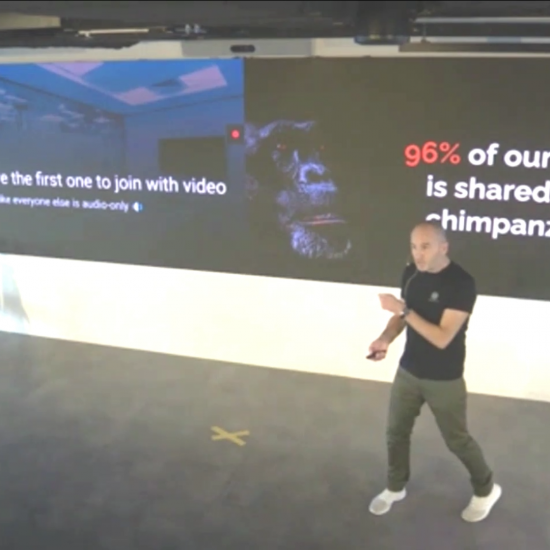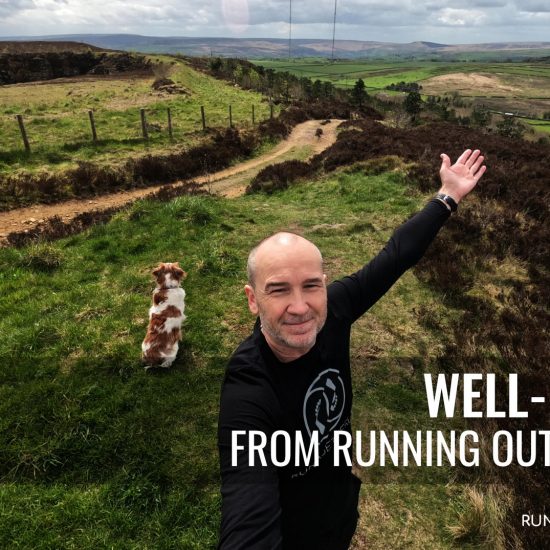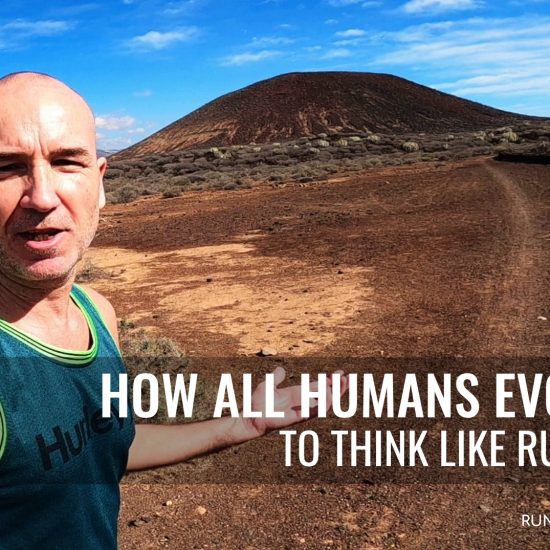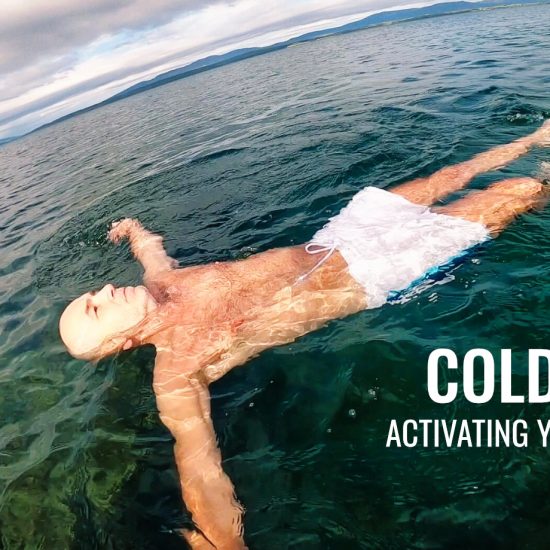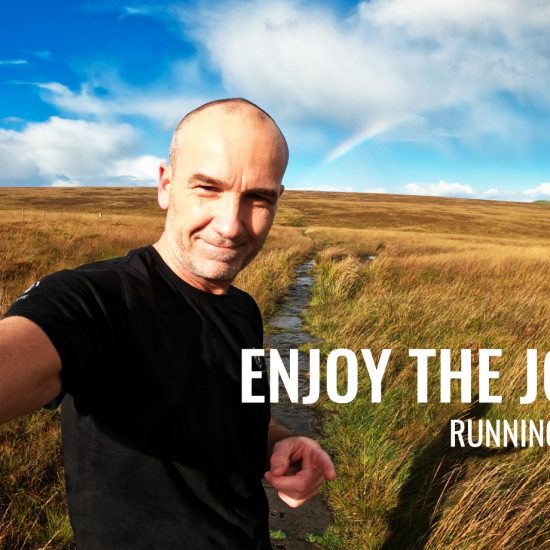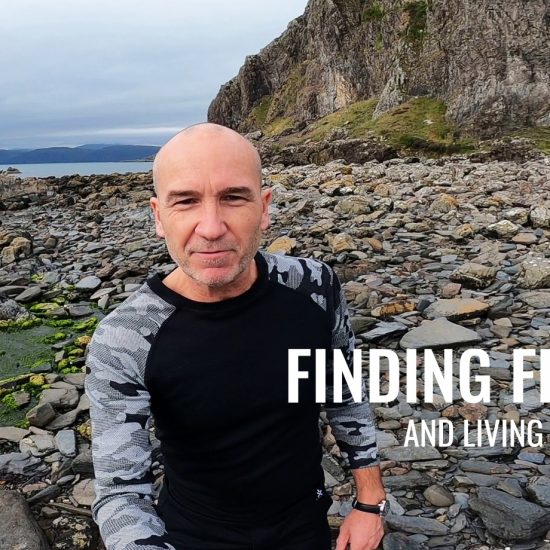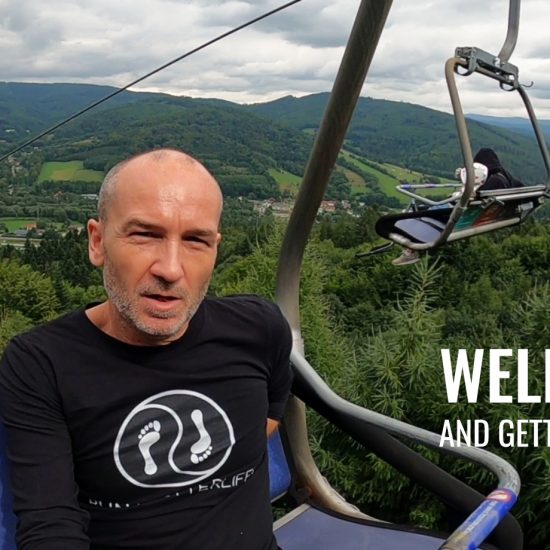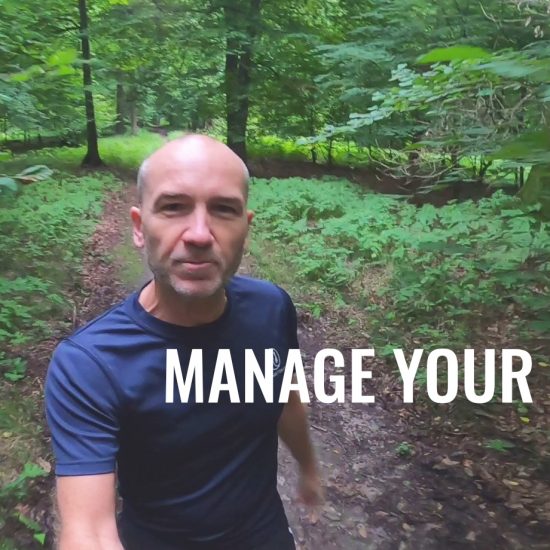
Dream jobs don’t start with LINKEDIN
Summary
● Don’t start your next career move by simply updating your most recent job experience on LinkedIn
● Beware of sleepwalking into your next job because of modern recruitment tools
● Start with what you want to do in the future – not with an update of what you did in the past
● Make smarter career and life choices by thinking like runner
These concepts borrow from the RUN A BETTER LIFE mindset that I cover in more detail on the website and in my book.

It’s time to seek your next career move. What the are the first steps?
You’ll probably:
(1) Update your LinkedIn profile to reflect your last job
(2) Search for jobs that fit your experience
(3) Apply for the jobs that align with your background and pay more money
Finding a new role has never been so easy. With just a few clicks on LinkedIn you are in the market. It is even possible to sit back, put your feet up and wait for talent scouts and jobs to come to you.
The next stage is to convince an employer that you are the best fit for the job during interviews.
The final stage is the negotiation. This stage usually involves testing the flexibility of the new employer in terms of pre-booked holiday and flexible working.
If you have multiple offers on the table, you will have an extra stage of weighing up the pros and cons of what is on offer.
The wrong approach
Updating your experience and then following these steps in order may appear a sensible approach. It is not, and I will now explain why.
To make the right decision we have to start in the right place. Because the LinkedIn recruitment process is so easy, we run the risk of starting in the wrong place and completely skipping the most important stage of considering what we actually want to do.
When we dive straight in with an update of our latest experience on LinkedIn, we can fail to ask ourselves basic questions, such as:
● What do I feel is my underlying purpose in life?
● What is most important for me, including my health, family and interests?
● Where do I want to spend my time and energy?
● Do I know which path is right for what I want to do?
When we ask these questions, it provides a completely different perspective. We are starting with what do we want to do in the future, not, what have we done in the past.
If we use our rear view mirror to dictate our choices, we will not appreciate the endless possibilities ahead. We will miss fulfilling our true potential – in terms of happiness and success. Looking backwards is not a recipe for living the life we want to live.
We can’t see ahead looking in the rear view mirror
When we buy something like a car or holiday we don’t invest solely on the basis of having owned or done something very similar in the past. You don’t hear many people say “let’s buy a Peugoet again because I’m familiar with the controls”, or “let’s go to Iceland yet again this year because we know our way around”.
You can see how ridiculous it would be if everything we purchased was a version of what we had before. But that pattern of behaviour is exactly what we have been conditioned to do in ‘choosing’ our next job. The primary concern is whether we’ve enough experience of doing something similar before.
But this is wrong. If life is a game, then it is a game of changing. So why do we focus on our past when planning something as important as our future? Our background experience may be useful for showing our journey and where we have come from, but it remains exactly that – back ground i.e. behind us, in the past.
Life is a game of changing
Whenever we travel we enjoy a richer, more stimulating experience. The same is true in life. There is always more to appreciate, learn and enjoy by venturing outside our comfort zone.
When we travel we usually like to explore somewhere new. So why do we not purposely seek out what’s unique, adventurous, quirky and novel when job seeking, rather than trying to match our next role to what we have already done?
Why do we not look for career opportunities that offer us something totally unique and different?
The Problem
The problem is that modern job seekers have been conditioned to conform. This happens for several reasons:
● Companies and recruiters have expectations as to what a career should look like
● Candidates will only qualify after an appropriate period of time in similar previous roles
● Employers tend to regard past experience as the best indicator of future performance – it is not
● Employers are usually reluctant to hire people with ‘strange’ career backgrounds
● LinkedIn profiles are optimised to share what we have done in the past, with recommendations from colleagues to do things we are already doing
● The recruitment process usually starts with screening out ‘inappropriate’ candidates, based on what? That’s right – not enough past experience
● People with different, adventurous or novel backgrounds are often rejected – because it is far easier to screen out who may not be right, rather than take the time to explore those who bring something uniquely different
● Because we know how it works – candidates then start to present a tailored image to align with what the company is looking for – rather than starting with what makes us special as individuals

Why the obsession with past experience?
It is ironic, but contrary to what recruiters would have us believe, previous experience is actually the least reliable indicator of a person’s future performance. Other, more important, attributes are things like our values, motivations, behaviours and intellect – the things that make us who we are and capable of – not what we have done.
Bear that in mind the next time a rejection email regrets to inform that there were other candidates whose experience more closely matched the requirements of the job. The undertone of the rejection email is “it’s nothing personal to do with you”, but that, unfortunately, is the problem – modern hiring processes are not personal enough anymore.
The bigger problem lies with us
Despite their continued obsession with past experience, recruiters and companies are NOT to blame. This article is not a critique of LinkedIn (which has many benefits) nor recruiters who use the platform.
After all, with so many applications per job, talent specialists need some way of managing the thousands of applications they may receive.
The problem lies with us – when we start believing that our past must determine our future. The problem is when we start to play along and start to limit our future options based on what LinkedIn (or our cv) says we did in the past.
When the system works
If we love what we do – there is no problem. Recruiters will be looking out for us, based on our experience, and the system is geared to help us progress. LinkedIn and talent scouts can help us continue taking steps forward within our profession or area of interest.
In this situation, our background and experience can act as a springboard to move on and move up.
But what if we have doubts about our current line of work being right for us?
Where the system breaks down
On leaving school or university, we may not have a clear idea about what we want do in life. For many people discovering what matters most, what we are good at, and what we care about – takes time. We first need to explore and try things before we get a sense of who we are and what we want to do.
As a result, the first jobs we take on are usually not part of a planned journey as to where we want to go. We take on our first jobs to pay the bills, to meet people, to get out of the house, to work with our friends, and experience something new – but rarely with a conviction to keep working in the same line of work for the rest of our life.
You see the problem. Knowing how the system is optimised to help us find a job that fits our background – it means these first jobs are going to influence the direction of our career, whether we realise it at the time, or not.
Falling into a profession without any real intent is fine if everything works out, but can be a trap for life if we happen to fall into the wrong pigeon hole. Furthermore, the longer we stay in that hole, with that label, the harder it becomes to change because of how recruitment works and the reasons I covered earlier.
This is massive as we are talking about potentially spending our life doing something we don’t really enjoy. There is too much at stake to play along and forever regard ourselves to be an accountant, a chef, a scientist or a whatever because we were once paid to perform such a role in the past.

What can we learn from the “RUN A BETTER LIFE” approach?
There are many principles we can carry over from the world of running to help us make smart career choices. As runners, we benefit from having a sense of direction as to where we want to go, we are able to follow our own path, we enjoy the sensation of progress, we are focused on our performance, we gain satisfaction from our movement, we prioritise our health and feel happier when we don’t always take the easiest route.
When we start looking for a new role by focusing on our past, it is akin to taking the easy route when running. As a result, we could end up following the career path that somebody else expects us to tread, without really asking ourselves where do we want to go. By thinking like a runner, we can reverse this and start with the right mindset.
● Think about what really matters in your own life BEFORE you start looking for something new
● If you don’t know your purpose, or you feel to be on the wrong path, it is time to re-assess what is important for you
For example, your purpose in life may be helping to save the planet, educating future generations, contributing to medicine or making the world a safer place. Achieving sales targets and increasing profit margins for large corporations are tasks, they should NOT be your primary purpose in life.
● No matter how many job offers you get, remember these will only represent a tiny fraction of the total opportunities that are out there. Don’t wait until an offer arrives to to weigh-up your options, because by now you will probably be choosing between limited variations of the same thing
● Just like when running, don’t be afraid to venture outside your comfort zone. As runners we like to have variety in the places we run. We also know that if it doesn’t challenge us, it wont change us. The same old routine won’t help us develop or to change something in our life
● If you want to change direction, but your experience is not aligned with what you want to do – then make sure you are sharing your skills, knowledge, talent and what you have to offer with potential employers, not just your background. To do this, you can take advantage of the LinkedIn skills section, as it is used in keyword searches by talent scouts
● Make sure your LinkedIn profile or cv is shouting about what you want to do, and why you are good at it. Increase your credibility (in the areas you want to highlight to recruiters) by seeking recommendations (a LinkedIn feature) from people that know what you have to offer (rather than what you have done)
● Before accepting any offer, re-confirm that this job is really for you. Does it feel right? Don’t get carried away with the excitement of receiving an offer. A promotion or more money is NOT confirmation we have made the right decision
● Don’t leave it until the final negotiation to secure some flexibility in working arrangements. The best distance runners are those that manage their energy better than other runners. We only have so much energy to devote to what we love and want to achieve. Before applying for any job, think about where you want to invest your energy, and what percentage of your time is available for paid employment versus everything else that matters in your life
● If a dream job isn’t an option right now, it doesn’t mean the journey is over. Taking a self-employed route, or accepting a temporary job (to save enough to make that next step) will keep you on track and add purpose to whatever you do today
Conclusion
The onus of responsibility lies with us. Don’t limit your future because of what others see in your past. If you need change in your life – start with yourself and what you want to do, not what you have done.
Finding our dream job may be closer than we think, but finding it requires us to visualise it first. We can then choose our path accordingly. We are unlikely to find our dream job by simply updating our most recent experience, closing our eyes and hoping it comes to us.
The RUN A BETTER LIFE concepts are covered in more detail in my book available on Amazon.
Category:
BlogDate:
July 7, 2021


